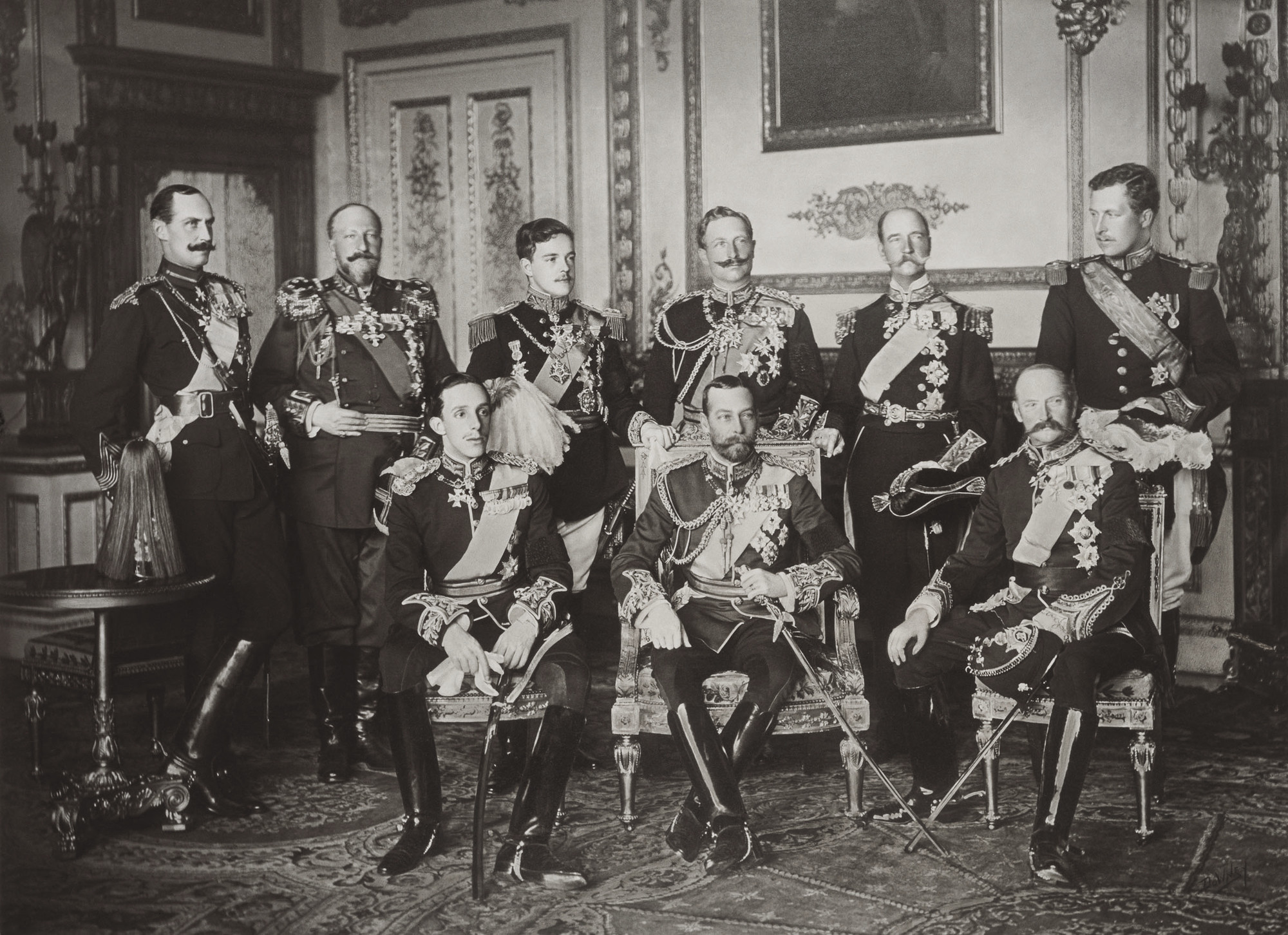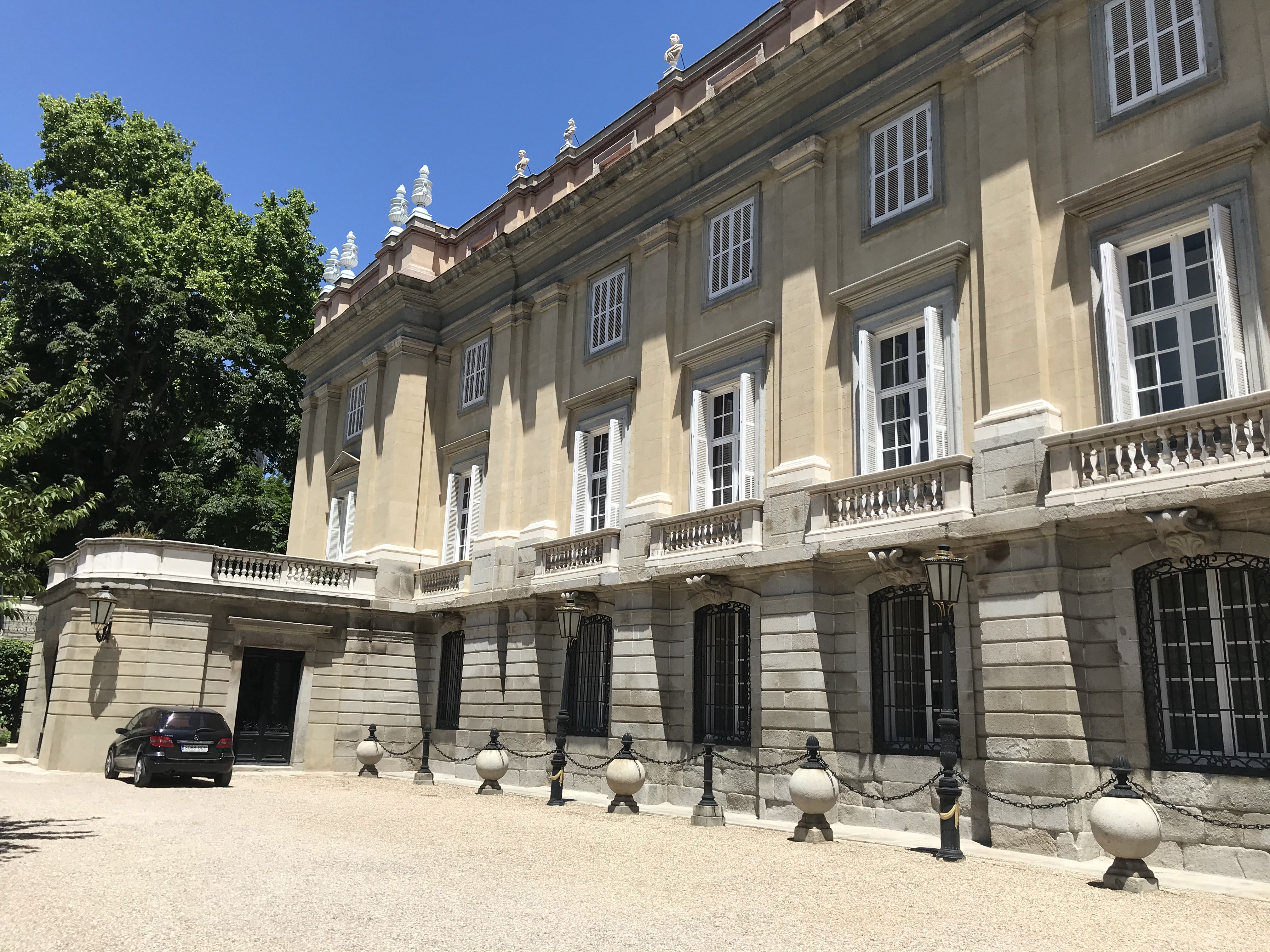|
Marquess Of Silvela
Marquess of Silvela () is a hereditary title of nobility in the Peerage of Spain accompanied by the dignity of Grandee. It was bestowed by Alfonso XIII on Amalia Loring, in memory of her late husband, Francisco Silvela, who was Prime Minister of Spain The prime minister of Spain, officially president of the Government (), is the head of government of Spain. The prime minister nominates the Spanish government departments, ministers and chairs the Council of Ministers (Spain), Council of Mini .... Marquesses of Silvela (1915) *Amalia Loring y Heredia, 1st Marchioness of Silvela *Jorge Silvela y Loring, 2nd Marquess of Silvela *Francisco Silvela y Montero de Espinosa, 3rd Marquess of Silvela *Jorge Silvela y Barcáiztegui, 4th Marquess of Silvela *Victoria Silvela y Faget, 5th Marchioness of Silvela See also * List of grandees of Spain References Bibliography * Spanish noble titles Marquesses of Spain {{Nobility-stub ... [...More Info...] [...Related Items...] OR: [Wikipedia] [Google] [Baidu] |
COA Marquess Of Silvela
COA or CoA may refer to: Organizations * Andorran Olympic Committee (Catalan: ''Comitè Olímpic Andorrà'') * Argentine Olympic Committee (Spanish: ''Comité Olímpico Argentino'') * Aruban Olympic Committee (Papiamento: ''Comité Olímpico Arubano'') * Canadian Osteopathic Association, a professional association of osteopathic physicians in Canada * Chicago Options Associates, an American company that specializes in trading options and futures contracts * Clowns of America International, an American organization that represents clowns * Committee of Administrators (CoA), oversaw the reform in 2017 of the Board of Control for Cricket in India * Council of Agriculture, agriculture-related institution in Taiwan * Council of Architecture, an Indian governmental organization that registers architects in the country * Community Oncology Alliance, an American non-profit that advocates for independent, community oncology providers and patients. * Continental Airlines, by ICAO airli ... [...More Info...] [...Related Items...] OR: [Wikipedia] [Google] [Baidu] |
Alfonso XIII Of Spain
Alfonso XIII ( Spanish: ''Alfonso León Fernando María Jaime Isidro Pascual Antonio de Borbón y Habsburgo-Lorena''; French: ''Alphonse Léon Ferdinand Marie Jacques Isidore Pascal Antoine de Bourbon''; 17 May 1886 – 28 February 1941), also known as El Africano or the African for his Africanist views, was King of Spain from his birth until 14 April 1931, when the Second Spanish Republic was proclaimed. He became a monarch at birth as his father, Alfonso XII, had died the previous year. Alfonso's mother, Maria Christina of Austria, served as regent until he assumed full powers on his sixteenth birthday in 1902. Alfonso XIII's upbringing and public image were closely linked to the military estate; he often presented himself as a soldier-king. His effective reign started four years after the Spanish–American War, when various social milieus projected their expectations of national regeneration onto him. Like other European monarchs of his time he played a political role, enta ... [...More Info...] [...Related Items...] OR: [Wikipedia] [Google] [Baidu] |
Spanish Nobility
The Spanish nobility are people who possess a title of nobility confirmed by the Spanish Ministry of the Presidency, Justice and Relations with the Cortes, as well as those individuals appointed to one of Spain's three highest orders of knighthood: the Order of the Golden Fleece, the Order of Charles III and the Order of Isabella the Catholic. Some members of the Spanish nobility possess various titles that may be inherited or not, but the creation and recognition of titles is legally the prerogative of the monarchy of Spain. Many Spanish titles and noble families still exist and many have transmitted their aristocratic status since the Middle Ages. Some aristocratic families in Spain use the nobiliary particle ''de'' before their family name, although this was more prominent before the 20th century. History 16th century The centralization of the Spanish royal court in early modern Europe reshaped Aristocracy, aristocratic power, shifting influence from regional noble dom ... [...More Info...] [...Related Items...] OR: [Wikipedia] [Google] [Baidu] |
Nobility
Nobility is a social class found in many societies that have an aristocracy. It is normally appointed by and ranked immediately below royalty. Nobility has often been an estate of the realm with many exclusive functions and characteristics. The characteristics associated with nobility may constitute substantial advantages over or relative to non-nobles or simply formal functions (e.g., precedence), and vary by country and by era. Membership in the nobility, including rights and responsibilities, is typically hereditary and patrilineal. Membership in the nobility has historically been granted by a monarch or government, and acquisition of sufficient power, wealth, ownerships, or royal favour has occasionally enabled commoners to ascend into the nobility. There are often a variety of ranks within the noble class. Legal recognition of nobility has been much more common in monarchies, but nobility also existed in such regimes as the Dutch Republic (1581–1795), the Republic ... [...More Info...] [...Related Items...] OR: [Wikipedia] [Google] [Baidu] |
Grandee
Grandee (; , ) is an official royal and noble ranks, aristocratic title conferred on some Spanish nobility. Holders of this dignity enjoyed similar privileges to those of the peerage of France during the , though in neither country did they have the significant constitutional political role the House of Lords gave to the Peerage of England, of Peerage of Great Britain, Great Britain and of the Peerage of the United Kingdom, United Kingdom. A "grandee of Spain" nonetheless enjoyed greater social privileges than those of other similar European dignities. With the exception of Duke of Fernandina, Fernandina, List of dukes in the peerage of Spain, all Spanish dukedoms are automatically attached to a grandeeship, yet only a few marquessates, Count (title), countships, List of viscounts in the peerage of Spain, viscountcies, List of barons in the peerage of Spain, baronies and List of lords in the peerage of Spain, lordships have the distinction. A single person can be a grandee of S ... [...More Info...] [...Related Items...] OR: [Wikipedia] [Google] [Baidu] |
Francisco Silvela
Francisco Silvela y Le Vielleuze (15 December 1843, in Madrid – 29 May 1905, in Madrid) was a Spanish politician who became Prime Minister of Spain on 3 May 1899, succeeding Práxedes Mateo Sagasta. He served in this capacity until 22 October 1900. Silvela also served a second term from 6 December 1902 to 20 July 1903, in which he succeeded another one of Práxedes Mateo Sagasta's many separate terms as prime minister. Francisco Silvela belonged to the Conservative Party led by Antonio Cánovas del Castillo. He was a Deputy in Parliament continuously from 1876 to 1903, mostly representing Ávila, but for one term he served Pontevedra. He became leader of the Party after the assassination of Cánovas in 1897. His government concluded the German–Spanish Treaty (1899), selling the remainder of the Spanish East Indies. Silvela named the general Arsenio Linares y Pombo, who had fought in the Spanish–American War, Minister of War in 1900. He withdrew from politics in 1903 and ... [...More Info...] [...Related Items...] OR: [Wikipedia] [Google] [Baidu] |
Prime Minister Of Spain
The prime minister of Spain, officially president of the Government (), is the head of government of Spain. The prime minister nominates the Spanish government departments, ministers and chairs the Council of Ministers (Spain), Council of Ministers. In this sense, the prime minister establishes the Government of Spain, Government policies and coordinates the actions of the Cabinet members. As chief executive, the prime minister also advises the Monarchy of Spain, monarch on the exercise of their royal prerogatives. Although it is not possible to determine when the position actually originated, the office of prime minister evolved throughout history to what it is today. The role of prime minister (then called Secretary of State) as president of the Council of Ministers, first appears in a royal decree of 1824 by King Ferdinand VII of Spain, Ferdinand VII. The current office was established during the reign of Juan Carlos I, in the Constitution of Spain, 1978 Constitution, which ... [...More Info...] [...Related Items...] OR: [Wikipedia] [Google] [Baidu] |
List Of Grandees Of Spain
Grandees of Spain () are the highest-ranking members of the Spanish nobility. They comprise nobles who hold the most important historical landed titles in Spain or its Spanish Empire, former colonies. Many such hereditary titles are held by extended family, heads of families, having been acquired via strategic marriages between landed families. All grandees, of which there were originally three ranks, are now deemed to be of equal status (''i.e. "of the first class"''); this dignity, designation is nowadays Title of honor, titular, conveying neither power nor legal privileges. A ''grandeza'' (Grandee of Spain, grandeeship) can be held regardless of possession of a title of nobility, however each ''grandeza'' was normally (although not always) granted in conjunction with a noble title. With the exception of Duke of Fernandina, Fernandina, grandezas have been granted with all List of dukes in the peerage of Spain, Spanish ducal titles. Grandees, their consorts and first-born heirs ... [...More Info...] [...Related Items...] OR: [Wikipedia] [Google] [Baidu] |


